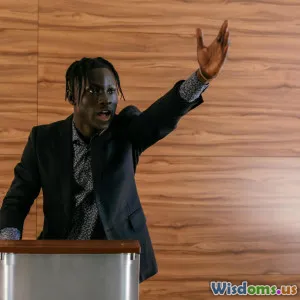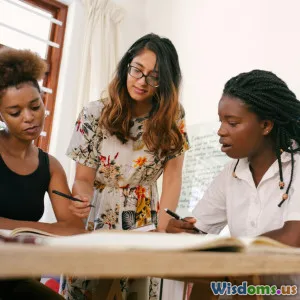
Political Puppeteers: The Impact of Secret Groups
5 min read Exploring the influence of secret groups on politics and society. (0 Reviews)
Political Puppeteers: The Impact of Secret Groups
In the shadowy corners of political influence, secret organizations have long held a significant sway over public policy and decision-making. From ancient societies to modern fraternal orders, these groups often operate behind closed doors, crafting agendas that shape the world we live in without the scrutiny of public opinion. This article aims to shed light on the impact of these political puppeteers, their historical context, and their contemporary implications.
Understanding Secret Societies
Secret societies are defined by their exclusive membership and often shrouded in mystery. They typically have rituals, codes of conduct, and a strong sense of fraternity among members. Some of the most well-known secret societies include:
- Freemasons: Founded in the late 16th to early 17th century, they focus on moral and ethical development.
- Skull and Bones: An elite society at Yale University, notorious for its influence among U.S. political leaders.
- Bilderberg Group: An annual conference attended by political and business leaders, often criticized for its lack of transparency.
These organizations often promote networking and camaraderie among their members, who may hold positions of power in government, business, and other influential sectors.
Historical Context: The Rise of Influence
Historically, secret societies have been linked to significant political movements and events. For instance, many founding fathers of the United States were Freemasons, and their principles have seeped into the nation's political fabric. Likewise, groups such as the Bavarian Illuminati, founded in 1776, sought to promote Enlightenment ideals but were quickly banned, leading to numerous conspiracy theories that continue to capture public imagination.
In the 20th century, organizations like the Council on Foreign Relations (CFR) have played pivotal roles in shaping U.S. foreign policy, often meeting behind closed doors to discuss global strategies. Their decisions can significantly influence international relations, trade policies, and military engagements.
Modern-Day Influence: A Double-Edged Sword
In today’s political landscape, the impact of secret groups can be seen in various forms, from lobbyists shaping legislation to think tanks influencing public opinion. Here are a few ways this influence manifests:
-
Lobbying and Legislation: Many members of secret societies are involved in lobbying efforts, pushing for laws and regulations that align with their interests. For example, the American Israel Public Affairs Committee (AIPAC) is not a secret society per se, but its behind-the-scenes lobbying mirrors the influence exerted by more covert organizations.
-
Networking and Access: Membership in these groups often provides access to powerful networks, allowing individuals to leverage relationships for political gain. This can lead to a concentration of power among a select few, further marginalizing underrepresented communities.
-
Public Perception and Misinformation: The aura of secrecy surrounding these organizations often breeds conspiracy theories and distrust among the general populace. While some theories may be unfounded, the lack of transparency can lead to legitimate concerns about accountability and ethical governance.
Conclusion: Navigating the Shadows
The impact of secret societies on political dynamics is profound and multifaceted. While they have historically contributed to significant advancements in society, their secretive nature raises questions about accountability and democratic integrity. Understanding these organizations and their influence is crucial for citizens seeking to engage meaningfully in the political process.
In an era of increasing transparency and demand for accountability, the challenge lies in balancing the benefits of networking and collaboration with the need for openness and representation. By bringing these hidden influences into the light, we can better navigate the complexities of modern governance and work towards a more equitable political landscape.
Rate the Post
User Reviews
Popular Posts





















